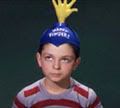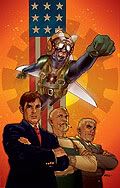The Middle Is The Hardest Road
Right or wrong, I think it was probably necessary. I don’t think I could have dealt with it at the level it was at for very much longer. And so I have retreated into a quiet and comfortable corner.
Of course, the falsity of it eventually becomes just as overwhelming and you realize you have to enter back into situations that you’d rather not deal with.
As I started to contemplate strolling off this quiet path, it occurred to me that perhaps that path has its own difficulties.
At least when you’re in the depths of a depression, there’s something there you can create friction against, there’s a height of emotion that gives you something to engage.
When you’re in the middle, there isn’t very much scenery and you’re not sure what direction to travel in, so you just coast. When things are truly horrible, you at least know that anything you do constitutes an improvement.
So, gradually, I’ve been allowing some of the water back into the boat.
This creates the potential to sink, but hopefully it will spur you to action.
I have made some sketchy plans for this year, but I am making them in the knowledge that things can fall apart at any time.
I think this is the most unpleasant part of my current predicament. I feel too old to have to deal with so many uncertainties. There is no solid ground, everything is quicksand.
The floor has dissolved beneath me in so many different ways that there’s almost a sense of dramatic unity to it. If you saw it in a movie, you wouldn’t believe it.
This is not lightning from above, though. There’s a terrible logic to all of it, all of these neglected chickens coming home to roost simultaneously. Stepping back from it objectively, it makes perfect sense and I see my own hand guiding all of it.
Which is a drag, frankly. At a time like this, self-esteem is an important ingredient. I’d rather be blaming someone else or cursing the darkness, etc.
It’s interesting. I could argue that this benign state represents a healthy, levelheaded view, free of the hopelessness and horror that characterizes depression.
On the other hand, you could also say it’s an easy way to temporarily escape from some truly awful issues and choices.
At any rate, I am not out of the woods. Not by a long shot.
I have my days and I have my days.
I would be lying if I said that I didn’t sometimes wonder how I was going to make it to the end of 2006.
There is another extreme, however, that’s just as far from the middle as the other.
It happens sometimes when I close my eyes.
I feel as if I am traveling through spaces of great beauty and immortal consciousness.
It doesn’t last for long.
But I wonder:
If I am capable of imagining this, if I can create this -
- doesn’t it mean that something that beautiful has to exist somewhere, somehow?
Where is it? How do I get more of it?
Is it waiting patiently for me at the end?
Or is it going to make me work harder than I ever thought possible while I am here?



















